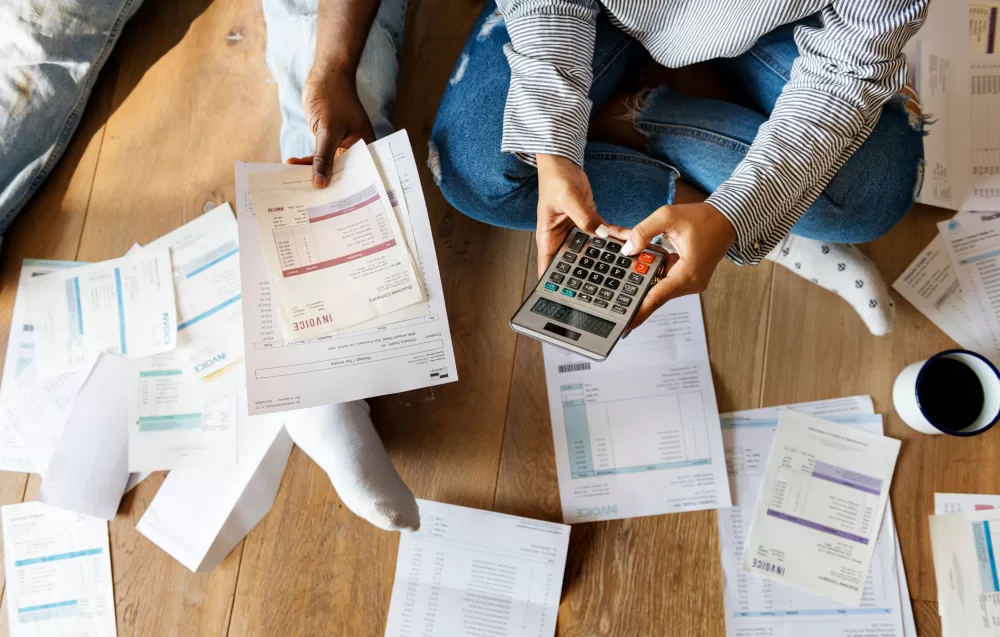Debt decisions in 2024: The difference between good and bad debt
8 January 2024
Many South Africans take on debt over the holiday season as they overspend on presents, parties, clothing, and travel. The desire to create memorable experiences for loved ones can encourage people to overlook budgetary constraints.

Having accrued various forms of credit card and store card debt, without fully grasping the implications of high interest rates and strict repayment terms, many people find themselves starting the new year in a precarious financial position.

“Understanding and managing debt is crucial for long-term financial wellbeing, as it can significantly impact your ability to save, invest, and achieve financial goals,” says Shafeeka Anthony, marketing manager of JustMoney.co.za, a platform that helps South Africans make good money choices.

“January is traditionally when people take stock of their financial situation and decide on fresh beginnings, so this is an ideal time to learn more about debt and take control of your money matters.”
Anthony says that a critical aspect of managing debt, and unlocking the key to financial peace of mind, is understanding the difference between good and bad debt.

Good debt: An investment in the future
Good debt means borrowing money to invest in assets that have the potential to increase in value over time, or to generate an income, says Anthony. Some examples of good debt include:
Student loans: Investing in education can increase your earning potential and long-term career opportunities.
Mortgages: Buying a home can be a wise investment as you’re paying off your own property, which generally appreciates over time.
Home improvement loans: Using a personal loan, or home equity loan (home loan refinancing), to renovate your property can increase its value markedly.
Business loans: Borrowing to start or expand a business can increase personal wealth and profitability.
Vehicle loans: Financing a reliable, value-for-money car can be a strategic move if transport is necessary for your work and increases your ability to generate an income.
Bad debt: A burden on financial health
Bad debt is incurred for purchases that do not contribute to wealth-building, or do not provide long-term value, says Anthony. Examples of bad debt that can quickly lead to financial strain include:
Credit card debt: Accumulating credit card debt for non-essential purchases, and not paying it off in full at month-end.
Lifestyle loans: Taking out loans for items with no lasting value, such as tech gadgets, fashionable clothing, and extravagant holidays.
Financing a rapidly depreciating vehicle: Financing a car that depreciates rapidly in value, and requires expensive repairs and parts, may be a poor financial decision.
Read a JustMoney article on how to break poor credit habits.
Debt and credit scores
Understanding your credit score is a crucial factor in managing debt. This is a tool that lenders use to decide whether you’re a low-risk or high-risk borrower.
Lending institutions such as banks check your score and accompanying report in detail before providing any kind of loan or credit. Your credit score also determines the interest rate you are charged.
Managing and repaying good debt has a positive impact on your credit score. On the other hand, accumulating bad debt, and failing to make timely payments, impacts your score negatively. Poor financial behaviour makes it challenging to access favourable financing options in the future.
“Given the tough economic climate, few of us can pay for a car or home in cash,” says Anthony.
“Using credit is unavoidable; being able to obtain a loan or bond can make all the difference to your lifestyle. If you can obtain a loan at a favourable interest rate, this adds up to a saving of thousands of rands over the payback period.”
View your credit score for free with JustMoney.
Debt reduction strategies
If you’re struggling with debt, it’s advisable to seek help sooner rather than later, advises Anthony. Debt counselling, for example, is a possible solution if you are overindebted and struggling to keep up with debt repayments.
Under this option, a debt counsellor acts on your behalf and negotiates lower interest rates. The process results in a single monthly instalment over an extended payment term.
“Taking the time to educate yourself about debt is a key aspect of managing your hard-earned money,” concludes Anthony. “Understanding the difference between good and bad debt empowers you to make informed financial decisions, avoid pitfalls, and build a secure future.”
Read a JustMoney guide on debt solutions.
JustMoney.co.za is a trusted voice within the personal finance sector. The JustMoney platform offers articles, money management tools, and a wide range of financial products and services. More than 450,000 South Africans subscribe to the free credit score platform to stay informed and become financially savvy. Subscribe here.
Caption: JustMoney.co.za encourages South Africans to make a January resolution to understand the difference between good and bad debt.
Issued by: Meropa Communications
On behalf of: JustMoney.co.za
Contact: Judy Bryant judyb@meropa.co.za, cell 083 286 7168
Judy Bryant | Senior Consultant
Cell: 083 2867168
e-mail: judyb@meropact.co.za
Website: www.meropa.co.za





























